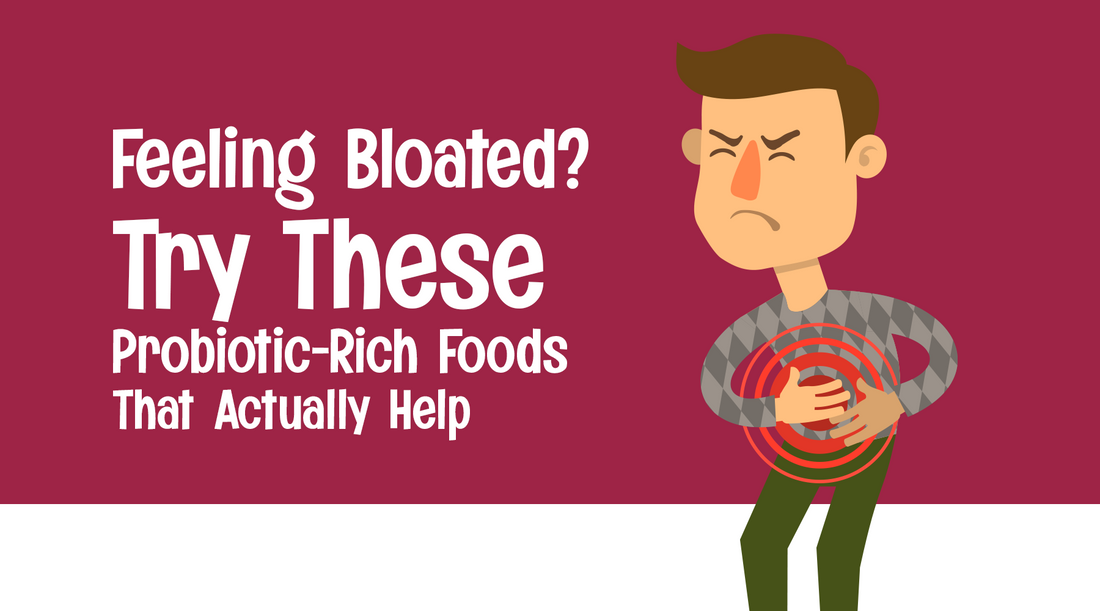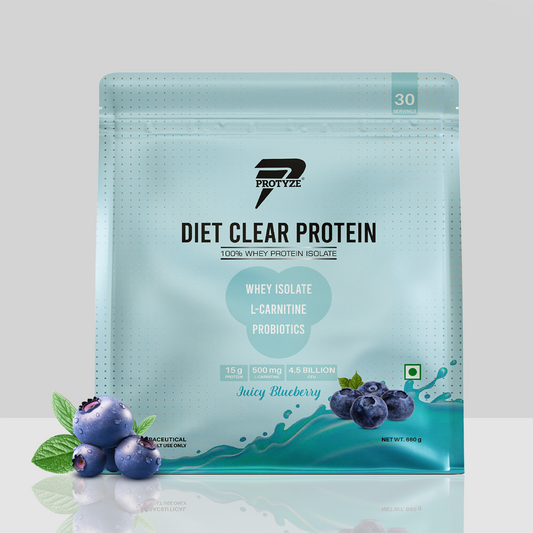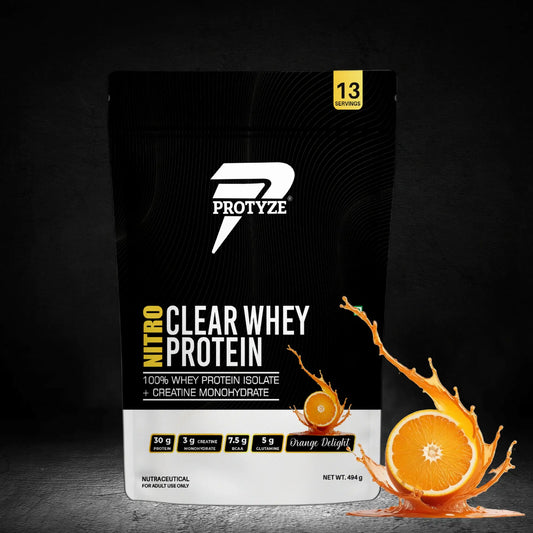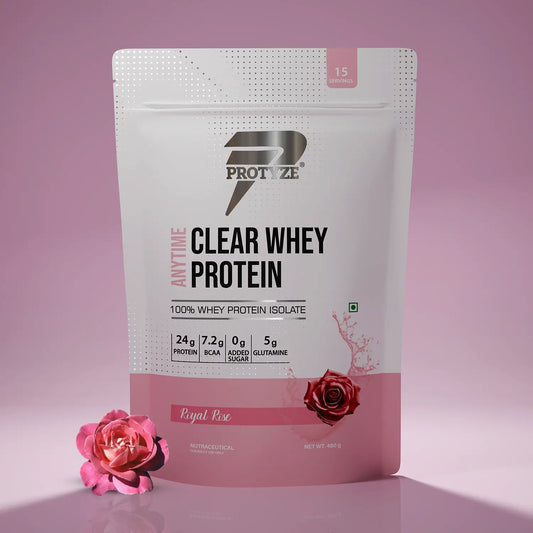Bloating is one of the most common digestive issues many people face today. Whether it’s due to overeating, eating too fast, stress, or poor gut health — that uncomfortable feeling of fullness, gas, and tightness can leave you feeling sluggish and uneasy.
But what if the key to reducing bloating and improving digestion lies not in cutting foods out, but in adding the right ones? That’s where probiotic-rich foods come into play. These foods are packed with live, beneficial bacteria that help balance your gut microbiome, improve digestion, and reduce bloating naturally.
In this article, let’s explore why probiotics are crucial for gut health and which foods you should include in your diet to beat the bloat — along with one simple, protein-rich option that gives your gut the support it deserves.
What Causes Bloating?
Before jumping into probiotic foods, it’s important to understand why bloating happens. Some of the most common reasons include:
-
Poor digestion: When your gut struggles to break down food properly, it can lead to excess gas buildup.
-
Imbalanced gut bacteria: Your digestive system contains both good and bad bacteria. When this balance is disturbed, it can cause bloating and other digestive discomforts.
-
Overeating or eating too fast: Swallowing air or eating large meals too quickly can increase gas and pressure in your stomach.
-
Lactose intolerance or food sensitivities: Certain foods like dairy or processed items can trigger bloating for some individuals.
- Dehydration and lack of fiber: Both can slow down digestion and cause constipation-related bloating.
While these triggers differ from person to person, maintaining a healthy gut microbiome through probiotics can help manage and even prevent bloating over time.
How Probiotics Help Reduce Bloating
Probiotics are live microorganisms that support the growth of good bacteria in your gut. They help in:
-
Balancing gut flora: Probiotics restore the natural balance of bacteria in your digestive system, keeping harmful bacteria under control.
-
Enhancing digestion: They assist in breaking down complex foods, reducing gas and bloating.
-
Improving nutrient absorption: A healthy gut absorbs vitamins and minerals more efficiently.
-
Reducing inflammation: Probiotics help calm intestinal inflammation that often contributes to digestive discomfort.
- Boosting immunity: Around 70% of your immune system resides in your gut, so better gut health naturally means stronger immunity.
The best way to introduce probiotics into your diet is through natural, probiotic-rich foods that promote a healthy and balanced gut.
Top Probiotic-Rich Foods That Help Reduce Bloating
Here are some of the most effective and easily available probiotic-rich foods you can include in your daily routine.
1. Yogurt
Yogurt is one of the most popular and accessible probiotic foods. It’s made by fermenting milk with live bacterial cultures such as Lactobacillus bulgaricus and Streptococcus thermophilus. These probiotics help improve digestion, reduce constipation, and prevent bloating caused by bad bacteria.
Opt for plain, unsweetened yogurt to avoid added sugars that can irritate your gut. For those who are lactose intolerant, choose lactose-free or plant-based probiotic yogurts made from almond or coconut milk.
Tip: Add yogurt to your breakfast with some fruits or use it as a base for smoothies to make a gut-friendly start to your day.
2. Kefir
Kefir is a fermented milk drink similar to yogurt but thinner in consistency and packed with even more probiotic strains. It contains both bacteria and yeast, making it more potent for improving digestion and reducing bloating.
Regular consumption of kefir supports bowel regularity, strengthens the intestinal lining, and reduces gas formation. If you are lactose intolerant, you’ll be happy to know that kefir is easier to digest since the fermentation process breaks down most of the lactose.
Tip: You can drink kefir as a post-meal digestive or mix it into smoothies for a light, probiotic-rich refreshment.
3. Kimchi
A staple in Korean cuisine, kimchi is made from fermented cabbage, radish, and spices. It’s loaded with probiotics, fiber, and antioxidants that not only support digestion but also help with detoxification and immune health.
Kimchi’s high fiber content aids in bowel movement, preventing constipation — one of the key causes of bloating. The fermentation process produces beneficial lactic acid bacteria that help balance your gut flora.
Tip: Add kimchi as a side dish with your meals or use it in wraps, sandwiches, or rice bowls for a tangy and nutritious twist.
4. Sauerkraut
Sauerkraut, made by fermenting finely cut cabbage, is another probiotic powerhouse. It’s rich in Lactobacillus bacteria that promote healthy digestion and reduce bloating by maintaining a balanced gut environment.
In addition to probiotics, sauerkraut is also a good source of vitamin C, iron, and fiber — all of which help support a strong immune system and healthy metabolism.
Tip: Add sauerkraut to salads, sandwiches, or grilled meats for a crunchy, gut-friendly addition.
5. Kombucha
Kombucha is a fermented tea beverage made using a culture of bacteria and yeast (SCOBY). It’s slightly fizzy, tangy, and packed with beneficial probiotics and organic acids that support digestion and reduce bloating.
The probiotics in kombucha help fight off harmful gut bacteria and improve nutrient absorption, while its natural acids help detoxify your system.
Tip: Choose low-sugar kombucha varieties, as excessive sugar can negate its gut health benefits.
6. Pickles (Fermented Ones)
Not all pickles are probiotic — only those that are naturally fermented without vinegar. Fermented pickles made with salt and water allow beneficial bacteria to grow, improving gut health and digestion.
These pickles can provide mild probiotics that help reduce gas and promote regular bowel movement. They’re also hydrating and can balance electrolytes to some extent.
Tip: Look for labels that say “fermented” or “contains live cultures” when buying pickles.
7. Probiotic-Fortified Foods and Supplements
While fermented foods are the most natural source of probiotics, not everyone consumes them regularly. For people who travel frequently, have busy schedules, or prefer convenience, probiotic-fortified foods and drinks can be a great alternative.
This is where Protyze Diet Clear Whey Protein comes into play.
Protyze Diet Clear Whey Protein – A Light, Probiotic-Friendly Option
If you’re someone who experiences bloating after consuming traditional protein shakes, Protyze Diet Clear Whey Protein offers a refreshing change. Unlike regular whey proteins that can be heavy on the stomach, this one is a clear whey isolate — meaning it’s light, water-based, and digests easily without causing discomfort.
What makes it stand out is its unique combination of high-quality protein, L-Carnitine, and probiotics that support fat metabolism and gut health simultaneously. The probiotics help in maintaining a healthy digestive system, preventing bloating, and improving nutrient absorption — all while delivering the protein your body needs for recovery and performance.
So, whether you’re working out, on a weight management journey, or simply want a light post-meal protein drink that keeps your gut happy, Protyze Diet Clear Whey Protein is a smart addition to your routine.
Other Gut-Friendly Practices to Prevent Bloating
Besides eating probiotic-rich foods, here are some lifestyle tips to keep your digestion smooth:
-
Stay Hydrated: Water helps move food through your digestive system and reduces water retention.
-
Eat Slowly: Avoid swallowing excess air by chewing your food thoroughly.
-
Limit Processed Foods: Artificial sweeteners, high-sodium snacks, and carbonated drinks can worsen bloating.
-
Exercise Regularly: Physical activity stimulates bowel movement and reduces gas buildup.
- Avoid Overeating: Smaller, more frequent meals are easier to digest and cause less bloating.
Final Thoughts
Bloating is often a sign that your gut needs a little extra care — and probiotics are one of the best ways to restore balance. By including probiotic-rich foods like yogurt, kefir, kimchi, sauerkraut, and kombucha in your diet, you can naturally improve digestion and feel lighter.
For those looking for an additional gut-supporting protein source, Protyze Diet Clear Whey Protein offers a convenient, probiotic-enriched, and bloat-free option that keeps you fueled and feeling good from the inside out.
